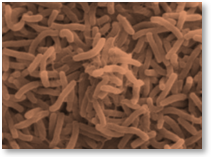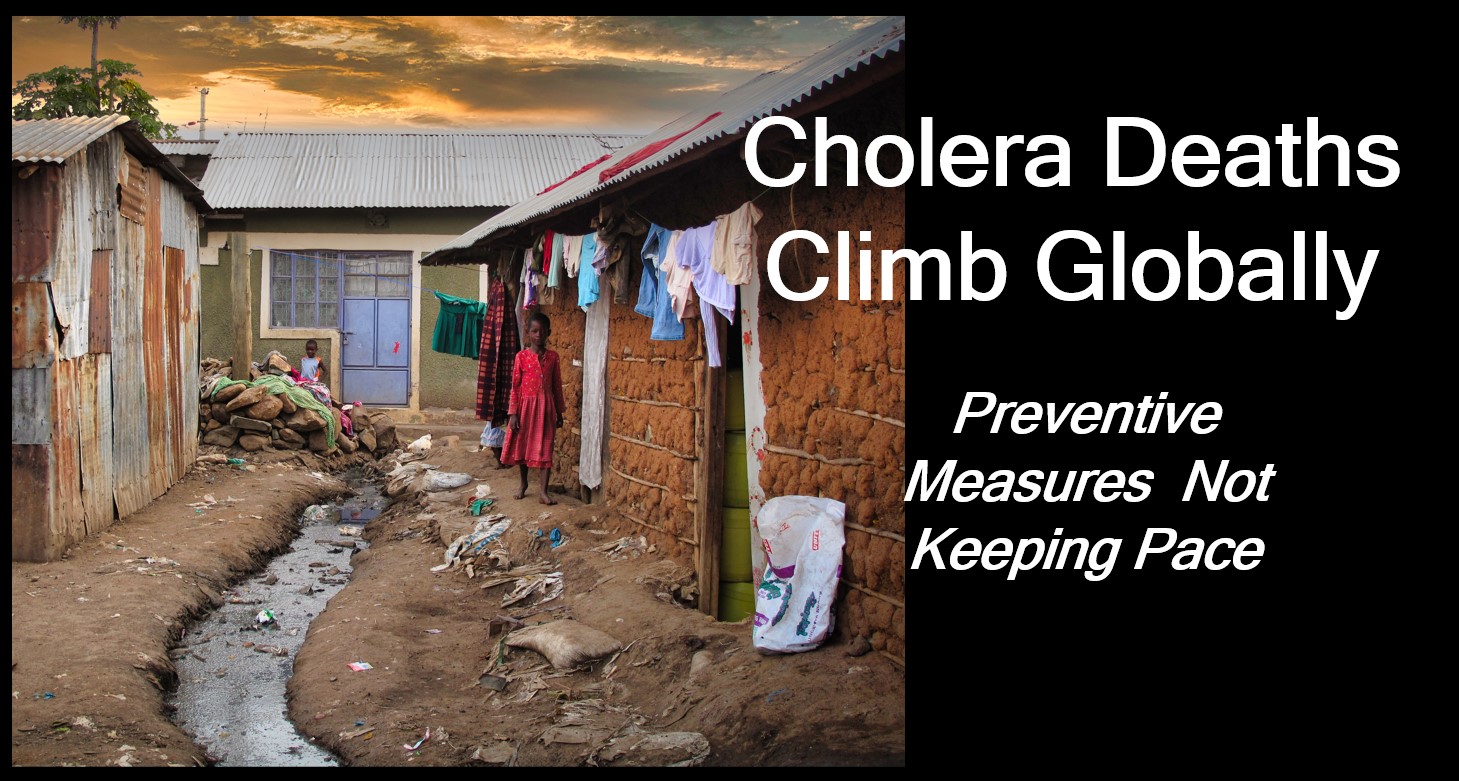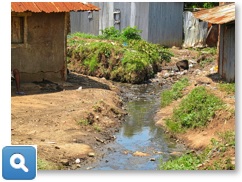By Allison Kozicharow; Edited by Elizabeth Fine
Once again, cholera cases are multiplying around the world. But now so are the cholera deaths.
 Cholera is preventable, but prevention is simply not keeping up with the outbreaks, especially in low-resource countries. According to the World Health Organization (WHO), the increase in deaths from cholera last year surpassed the increase in cases.
Cholera is preventable, but prevention is simply not keeping up with the outbreaks, especially in low-resource countries. According to the World Health Organization (WHO), the increase in deaths from cholera last year surpassed the increase in cases.
The New York Times reported that “The number of cholera deaths reported globally last year increased by 71 percent from deaths in 2022, while the number of reported cases rose 13 percent. Much of the increase was driven by conflict and climate change, the W.H.O. report said.”

In addition The New York Times stated that the soaring cholera death rate last year was due to what WHO “calls ‘community deaths’: people who died of cholera without receiving any care in a health center.” The article also noted WHO’s emphasis on health surveillance.
 Surveillance is where WiRED international’s trained community health workers (CHWs) come in. Working directly within their communities, they are likely to be among the first health workers to recognize the emergence of a disease. The surveillance function of CHWs is a critical part of their work as is their referring people to medical facilities and health authorities as needed.
Surveillance is where WiRED international’s trained community health workers (CHWs) come in. Working directly within their communities, they are likely to be among the first health workers to recognize the emergence of a disease. The surveillance function of CHWs is a critical part of their work as is their referring people to medical facilities and health authorities as needed.
As well as training CHWs on spotting cholera, WiRED offers a cholera module for general audiences in English, French, Spanish and Ukrainian. The course describes cholera and its prevention, transmission, symptoms, treatment and complications. Also, the module contains a technical section designed for medical professionals that gives information about cholera treatment and vaccines.
What drives cholera and other disease outbreaks, especially in low-resource countries?
 Inadequate or nonexistent healthcare systems
Inadequate or nonexistent healthcare systems- Shortage of doctors and nurses
- Low supply of existing vaccines
- Consequences of climate change
- Periodic catastrophic weather phenomena
- Famine
- Lack of clean water
- Conflict and war
- Humanitarian crises, large-scale migration
Other examples of disease concerns globally include mpox in Africa, polio in Gaza Strip and vaccine-preventable diseases in war-torn Ukraine.
WiRED is dedicated to preparing populations in underserved countries to face disease outbreaks and to adopt healthy practices. We do this by providing WiRED health education modules and programs free of charge to all and training paraprofessional teams of CHWs to offer trusted and crucial health care within their own communities.
Oral Hydration Therapy: Simple Treatment for Dehydration
 Oral hydration therapy (ORT) is the primary cholera treatment. ORT is a simple and inexpensive ministration of an oral rehydration solution (ORS), which if given promptly to patients restores the fluids and salts lost through diarrhea. ORS packets are available at health centers, clinics and stores and then mixed with clean or boiled drinking water. If ORS packets are not available, homemade solutions of sugar and salt used in the correct proportions offer effective treatments. The Cholera module offers proper mixing instructions.
Oral hydration therapy (ORT) is the primary cholera treatment. ORT is a simple and inexpensive ministration of an oral rehydration solution (ORS), which if given promptly to patients restores the fluids and salts lost through diarrhea. ORS packets are available at health centers, clinics and stores and then mixed with clean or boiled drinking water. If ORS packets are not available, homemade solutions of sugar and salt used in the correct proportions offer effective treatments. The Cholera module offers proper mixing instructions.
 NOTE: Dr. Robert Northrup, a WiRED Advisory Board member, is an expert in global medicine and closely involved with the promotion of life-saving therapies such as ORT. Northrup’s team at the IDDR,B developed the formula for making ORT at home from correct proportions of salt and sugar.
NOTE: Dr. Robert Northrup, a WiRED Advisory Board member, is an expert in global medicine and closely involved with the promotion of life-saving therapies such as ORT. Northrup’s team at the IDDR,B developed the formula for making ORT at home from correct proportions of salt and sugar.



